Hey,
A couple weeks ago, the Wall Street Journal’s Greg Ip wrote an essay titled, “The U.S. Marches Toward State Capitalism with American Characteristics.” He began:
A generation ago conventional wisdom held that as China liberalized, its economy would come to resemble America’s. Instead, capitalism in America is starting to look like China.
Recent examples include President Trump’s demand that Intel’s chief executive resign; the 15% of certain chip sales to China that Nvidia and Advanced Micro Devices will share with Washington; the “golden share” Washington will get in U.S. Steel as a condition of Nippon Steel’s takeover; and the $1.5 trillion of promised investment from trading partners Trump plans to personally direct.
This isn’t socialism, in which the state owns the means of production. It is more like state capitalism, a hybrid between socialism and capitalism in which the state guides the decisions of nominally private enterprises.
Since publication, the march toward state capitalism in America has only picked up the pace. After bullying the Intel CEO to quit, Trump reversed course and acquired—some would say extorted—a 10 percent share of the company.
Now, a lot of people are calling this “socialism” or even “communism.” And while few people love a good argument about terminology more than I do, I think Ip is closer to the mark. State capitalism is a better term for what we’re seeing than socialism, never mind communism. My only point of disagreement with Ip is the “with American characteristics” bit. Despite all of the rhetorical bunting of “America First” and “Make America Great Again,” I think the better term would be “State capitalism with Trumpian characteristics.”
As a non-paying reader, you are receiving a truncated version of The G-File. You can read Jonah’s full newsletter by becoming a member here.
Donocracy.
As I’ve written before, I think Trump conceives of himself as a kind of mob boss, or a mobbed-up party boss, like one of his heroes Meade Esposito, the longtime mafia-adjacent Democratic Party boss of Brooklyn.
To quickly recap: My theory explains his foreign policy very well. He sees Russian President Vladimir Putin and Chinese President Xi Jinping as co-equal bosses of their respective families, so they deserve—often fawning—respect and deference. They should be free to push around their associates and under-bosses—i.e. countries in their territory. Similarly, Trump believes he is within his rights to bully the outfits in his purview—Canada, Western Europe, etc., or what we used to romantically call “the free world.” When you hear him talking about NATO countries “paying more” into NATO, his ignorance of how NATO actually works is only part of the issue. He sincerely thinks his underbosses should kick up more for his protection. Not America’s protection, his protection.
He’s said several times that Ukraine shouldn’t have started the war with Russia. This is a grotesque mischaracterization of reality, but it makes total sense if you see Putin as the equivalent of the head of the New York-based Lupertazzi crime family and Ukraine as the North Jersey rump family known as the Sopranos. Ukraine had no business trying to strike out and do its own thing.
My theory also has a lot of explanatory power domestically.
For Trump, the distinction between the federal government and the president is essentially meaningless. The constitutional authorities of the president are just a bunch of words. He said yesterday that he has “the right to do anything I want to do.” After all, “I’m the president of the United States.” This was in the context of using the U.S. military as his own personal button men.
The distinctions between the private sector and the public? Also largely meaningless (more on that in a bit).
Obviously, Trump likes the title president of the United States—who wouldn’t? But his political “philosophy” doesn’t recognize the legal limits that go with the title. As with Boss Hague who ran Jersey City, or E.H. Crump who ran Memphis and much of Tennessee, Richard Croker of New York, Tom Pendergast of Kansas City, or Meade Esposito of Brooklyn, formal titles were exactly that: formalities. (This should tell you something about how Trump will view his role in Republican politics when he leaves office).
Suffice it to say Trump thinks he’s the boss—not dictator per se, but boss in the old-fashioned sense, the Tammany Hall sense—of America. His theory on trade is premised on the idea that the whole country is a “department store” that he runs without any authority from Congress. Constitutional and traditional guardrails are at best polite fictions. The states are just “agents” of the federal government, as he repeatedly says. Republicans in Congress are his underbosses and button-men. Political appointees and agency heads? It’s better if they’re nominally qualified, but the primary qualification is loyalty and omertà about “our thing.” Talk to him about the rules or laws and he rolls his eyes and just says, “Make it happen.” His voters and supporters are “his people,” like the kids and old ladies in the neighborhood he feels obliged to protect. Everyone and everything else are the marks, and they need to kick up more and pay tribute. Harvard? They were never with me, make them pay. Intel? They gotta give us a piece of the action. Law firms? They’ll be okay if they let me wet my beak.
The examples hardly end there, as Eli Lake notes in his “Trump Goes Full Godfather” essay today.
The oldest government.
A fascinating aspect of this is how blind most political theorists and analysts are to it. I don’t mean no one sees that Trump acts like a thug and would-be autocrat. That’s hard to miss, though many of his defenders work hard to miss it.
I mean that this way of seeing politics has a richer, older, and better documented history as a form of political organization than any of the antiseptic, highly technical terms many commentators like to use. Virtually no one ever heard of “liberal democracy,” “socialism,” “liberalism,” or even “conservatism” until the early 1800s when such terms were coined. “Communism” appears in the late 1700s (around the same time as “nationalism”) but doesn’t really become a widely-discussed thing until the middle of the 19th century. “State capitalism” was coined by the German socialist Wilhelm Liebknecht in 1896. “Technocracy” first appeared around 1919. “Fascism” showed up around then, too.
But Trump’s theory of political economy is thousands of years older—older than terms like “democracy” or even “monarchy.” These days the eggheads call it patrimonialism or some such. But for most of human history, it was just called “politics” or simply “life.”
Basically, all aristocracy and monarchy began with a similar kind of mob politics. Warlords conquered territory and decided to hold onto it. These “stationary bandits”—Mancur Olson’s term—set up shop and extracted “rents,” which is egghead-speak for a “piece of the action.” As Albert Jay Nock memorably put it, “The positive testimony of history is that the State invariably had its origin in conquest and confiscation. No primitive State known to history originated in any other manner. On the negative side, it has been proved beyond peradventure that no primitive State could possibly have had any other origin.”
If you took a Viking raider or Mongol warrior and put him in an Olympic fencing match, he’d beat the fencer—but not at fencing. He’d have no use for the silly bendy foil. He’d grab his axe or scimitar and cut the prancing opponent in half. Or, if he lacked a weapon, he’d just beat him to death. Can’t blame him, he didn’t know the rules.
And that’s the thing. The rules we live by are artificial. That doesn’t make them bad. Those rules are everything. Those rules are why the West got so rich and so free. They’re why we have air conditioning and penicillin. They’re why you have a right to a lawyer when accused of a crime by the government and why you have the right to criticize that government.
It’s not that Trump doesn’t understand the rules, though that’s often the case. It’s that he doesn’t care about them—unless they can be used against his enemies.
But let’s get back to state capitalism. The people hurling “socialist” around are technically incorrect, but they have a point all the same. For instance, Jim Geraghty is entirely correct to skewer right-wingers in his column titled “When Mamdani says it, it’s socialism. When Trump does it, it’s genius.” If you’re going to use the wrong word, use it consistently.
Rand Paul asked of Trump’s slice-taking of Intel, “If socialism is government owning the means of production, wouldn’t the government owning part of Intel be a step toward socialism?” Maybe—it’s happened before—but it’s a step more in the direction of fascist economics or state capitalism. But socialism is on that path, too.
I don’t have the time or space to explain this point in full, but the reason state capitalism, patrimonialism, kleptocracy—pick your label—sometimes lays the groundwork for more robust socialism is that the arguments for having politicians pick winners and losers based on political priorities rely on the same logic. “We know better than the market” is the starting point for every -ism that seeks to supplant the market with the personal preferences of politicians and activists. The motives for substituting human judgment—whether the human is a singular leader or a vast coterie of experts—can vary, from simple greed to utopian or nationalistic visions. But the original error is the same.
I do think it’s worth noting that the most influential socialist of the 20th century—and I would argue, ever—was a state capitalist, at least for a while. The first real deployment of state capitalism as an explicit government program was ushered in by Vladimir Lenin under his New Economic Policy. After the Russian Civil War, Lenin recognized Russia needed to build up its economy, which required capitalism. “State capitalism”—his phrase!—was necessary to the task of “building socialism in a peasant country.”
Trump adviser Kevin Hassett, or at least the being that is wearing the skin suit of the Kevin Hassett I once knew, says the Intel venture is a first step toward a sovereign wealth fund. Commerce Secretary Howard Lutnick recently revealed that the administration is actively considering acquiring stakes in defense contractors. Trump—and his defenders—want a sovereign wealth fund so that Trump can independently spend taxpayer money as he pleases. It would be a giant piggybank for him to reward friends, punish foes, and generally distort the economy based on his preferences.
That’s how Trump views cryptocurrencies. He used to think they were a scam. But now that he gets a piece of the action, he wants the government to buy as much as possible—the dollar as the global reserve currency be damned. If it makes the Trump family—literally and figuratively—richer, it must be good policy. Even if a “Crypto Fort Knox” is an incredibly stupid idea.
Daniel McCarthy, the editor of Modern Age, offers a bizarre defense of Trump’s approach in the New York Post. I’ll save most of my response for the Remnant later this week (since he singles me out for criticism). But McCarthy seems to believe that a sovereign wealth fund would be a great response to the challenges we face. He seems unaware of, or unconcerned with, the fact that the countries with SWFs use surplus wealth—oil revenues usually—to fund their ventures.
Whether that practice is advisable for a country like ours is debatable, but the fact is, America is $37 trillion in debt. So the primary means of funding a SWF would require borrowing more money to get it going. It would also work on the assumption that Trump—not the market and certainly not Congress—would be the sole “expert” on how to allocate taxpayer dollars. This would be a profoundly gross distortion of the constitutional order. Congress, not the president, has the sole power to tax and the sole power to decide how tax dollars are spent. It would also be a hate crime against Frédéric Bastiat, because it assumes that the money taken out of the economy would be better spent on Trump’s pet projects than on ventures determined by investors, consumers, and the market generally.
Of course, there’s another way to fill up the piggy bank Trump wants and that McCarthy thinks Trump—and future presidents, including Democratic ones—should have: He can simply extort the private sector to give him chunks of corporations.
I’ll close with a summary of Trump’s explanation for how he acquired a stake in Intel at his marathon Cabinet meeting yesterday. I’ve had to edit it a bit for clarity because of his meandering way of talking (Lest you think I’m being unfair, you can read a messier transcript here). Trump was asked by a reporter “What other companies are you thinking about taking the stake in?”
Trump replied, “Well, we didn’t take the stake in the sense that it was reported. Everyone said, I bought a stake in Intel. No, I got it for free.”
He then explained the backstory. Trump had demanded that Lip-Bu Tan, the CEO of Intel, resign, based on charges that Tan was too close to the Chinese government. (“The CEO of INTEL is highly CONFLICTED and must resign, immediately,” Trump declared on social media a few weeks ago. “There is no other solution to this problem. Thank you for your attention to this problem!”)
Back to yesterday’s comments. Trump said, “When he came in … I said some rough things about him. I said, ‘I’m not happy with it’… and he was very devastated at what I said. I said he ‘should immediately resign.’ And he came to see me, and I was very impressed by him, actually … he made a mistake, or things—factors happened where something like this could have taken place. In the meantime, his board was staying by him. … and I said to him, and took about, I would say, less than 45 seconds.
“I said, ‘You know what you should do, if you’re smart? Give the United States of America 10 percent of your company.’ He looked at me, and he said, ‘I’ll do that.’ I said, ‘I just made $11 billion for the United States,’ and we made the deal …
“I took—I didn’t pay, we didn’t write a check.”
Exactly. Don Corleone couldn’t have said it better. Well, actually, he probably could have, because Don Corleone spoke in more complete sentences.
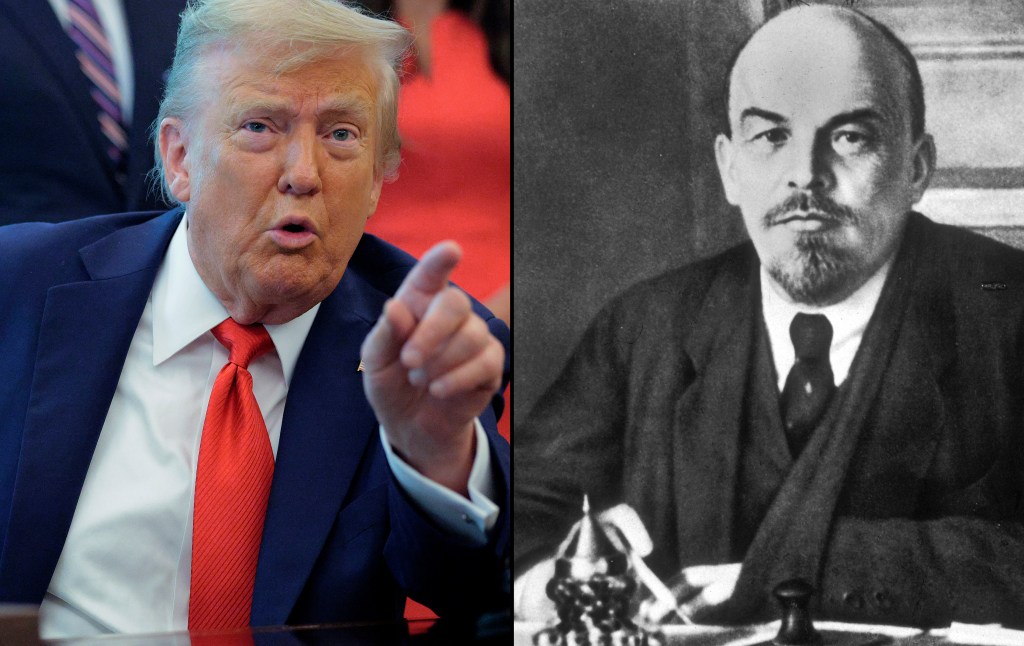


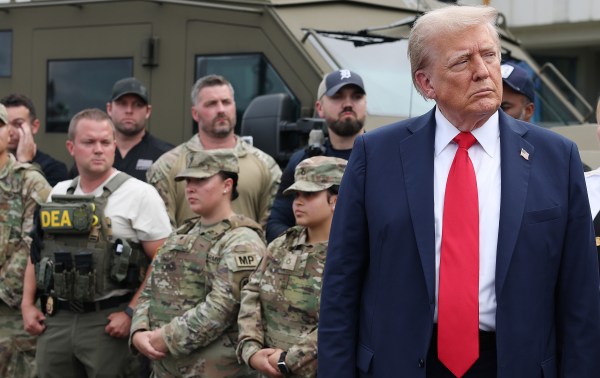
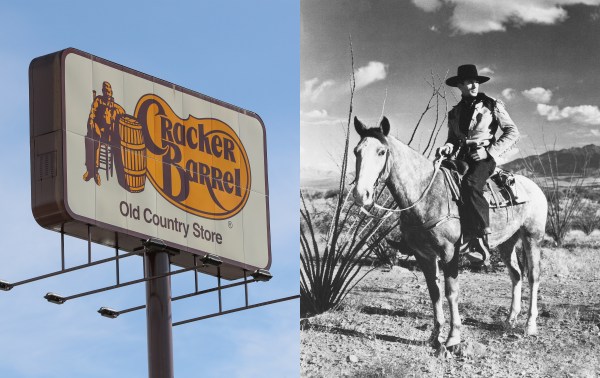
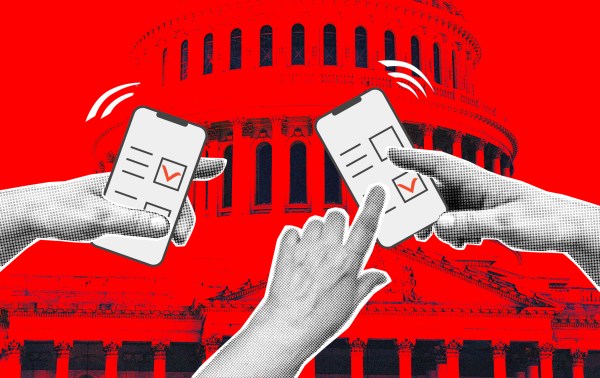

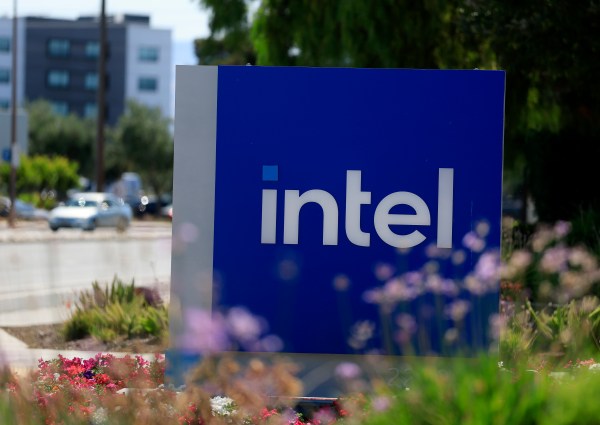
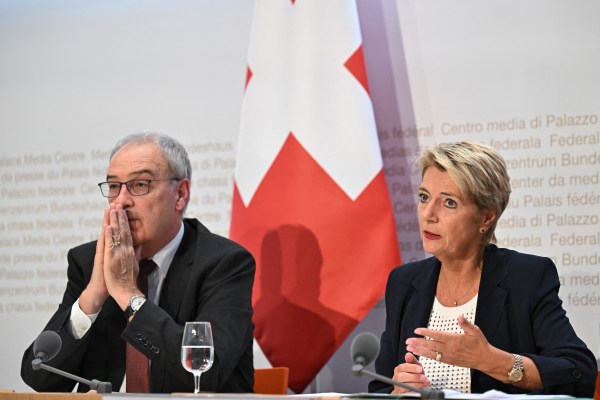


Please note that we at The Dispatch hold ourselves, our work, and our commenters to a higher standard than other places on the internet. We welcome comments that foster genuine debate or discussion—including comments critical of us or our work—but responses that include ad hominem attacks on fellow Dispatch members or are intended to stoke fear and anger may be moderated.
With your membership, you only have the ability to comment on The Morning Dispatch articles. Consider upgrading to join the conversation everywhere.